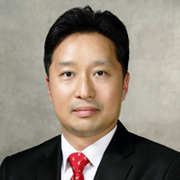Executive Summary
Since the inter-Korean summit of April 2018, a string of diplomatic exchanges involving the Democratic People’s Republic of Korea (DPRK) as well as indications by Chairman Kim Jung Un himself hinted at alternative economic development models for North Korea, ushering in a swell of optimism. Especially buoyant have been investors, both within and beyond the Korean Peninsula, who have been showing manifestly enthused preemption in prospecting profitable enterprises in the North Korean economy with its promising capital endowments. The DPRK also exhibits a clear willingness to create a regulatory climate that is conducive to the admission and hosting of foreign direct investment (FDI). This willingness was demonstrated through amendments to its legal system, even its Socialist Constitution, to create a hospitable regulatory environment for foreign investors. Adding to this is the fact that the DPRK entered into 24 known bilateral investment treaties (BITs). Further evidence of this willingness is found in the rules administering the special economic zones (SEZs) in North Korea as well as rules setting out the settlement of commercial and investment disputes through an arbitration center that functions as a separate juridical body.
Meanwhile, the DPRK nuclear program and military provocations remain at large and at odds with geopolitical sentiment, which finds expression through a multilateral sanctions regime. This reality renders the prospect of a globally integrated North Korean economy as little more than a distant fantasy. This report sidesteps this reality in order to examine the issue of FDI and the DPRK within a normative space of inquiry. By examining the laws and treaties of the DPRK as well as anecdotal evidence, this report evaluates the regulatory readiness of the DPRK as it pertains to the hosting of FDI, specifically on the issue of fair and equitable treatment (FET).
By examining the state of FET in the DPRK, one may estimate how those obligations are observed and enforced. Insofar as they pertain to FDI, the body of laws of the DPRK and the treaty provisions are both modern and at times more expansive in their treatment of FET than other states with more globally integrated economies. However, there remain at least three fundamental challenges to FET that shall undoubtedly influence the DPRK’s investment climate.
The first is procedural propriety concerning whether government authorities and the national court system provides foreign investors with access to the administrative services of the government, such as the means to settle disputes. Whether the DPRK provides such functions and remedies is an important element of FET. In the DPRK, foreign investors have access to two venues for dispute settlement: domestic courts and the Chosun International Trade Arbitration Committee. The greater challenge to procedural propriety lies in fair procedure, such as the availability of objective legal representation and the right to fair trial. In the DPRK, the Chosun Bar Association manages all attorneys in North Korea and has been shown to act as a political mouthpiece of the regime. This brings into question the fidelity of legal recourse available to foreign investors and therefore the extent to which the state provides for procedural propriety.
The second is whether foreign investors can hold legitimate expectations that the laws, regulatory mechanisms and/or public processes of the DPRK shall operate in the way that were made apparent to investors at the time of the investment. While foreign investors are granted fair and equitable treatment whether through a BIT or DPRK law, the regime’s interpretation of what is fair and equitable remains uncertain. Without first understanding the regime’s positioning on this substantive issue, the extent to which foreign investors may hold legitimate expectations remains obfuscated. If the DPRK knowingly takes actions that results in material injury to foreign investors, then it can be seen as acting contrary to the expectations of the investor that were legitimized by the object and purpose apparent in the laws and BITs of the DPRK to encourage investment and contribute to greater economic exchange.
The third is whether foreign investors are protected from arbitrary treatment by DPRK authorities and/or representatives. To identify whether treatment is arbitrary requires first to examine the purpose of the measure taken by the government that might have caused injury to the foreign investor. While DPRK law provides protections to the foreign investor against such injury, it also identifies numerous instances when the government may reserve its right to regulate for the sake of accomplishing a public policy objective, even if it results in losses to the investor. For instance, the DPRK can prohibit the incorporation of a foreign business when it threatens national safety or impedes the country’s development. Ideological tenets play a central role in qualifying these sweeping ideas. The three most regularly appearing include: “democracy,” “socialism,” and “Juche.” The Socialist Constitution of the DPRK identifies the purpose of the DPRK legal system as being for the sake of the will and interests of the working class and the role of the state is to complete the socialist legal system and strengthen socialist justice. The way that the DPRK pursues those objectives through policy and, in turn, how those policies influence the regulatory framework for foreign investment determines whether investors have experienced arbitrary treatment. The isolated nature of the DPRK as well as its ideological commitments to Juche threatens predictability in its legal system.
On the basis of past decisions with comparable circumstances, third-party data and anecdotal evidence linked to investors operating in North Korea, this report reaches the following conclusion: the first-order interaction for the DPRK is that it must demonstrate good faith through continued engagement in international legal mechanisms and institutions. This can help overcome regulatory chill imposed by unclear FET standards. One especially illustrative case of lacking good faith includes the investments of Orascom Telecom Media, an Egyptian company, into North Korea. The DPRK employed measures starting from 2012 that violated the legitimate expectations that Orascom held at the time of its investment. Based on comparable circumstances in past decisions of investment treaty arbitration, this can be conclusively seen as an act of indirect expropriation. Such actions explicitly violate the DPRK-Egyptian BIT, which grants Orascom the guarantees of FET, which typically provides for legitimate expectations. The lack of precedence to understand how the North Korean judicial system operates and no record of arbitral practice involving the DPRK make it difficult to anticipate how the state may behave when engaging the regulatory instruments of international investment law.
Based on these findings, this report concludes by proposing the creation of a joint interpretation mechanism, e.g., joint government interpretation of treaties, as a policy solution that can help to not only strengthen the rule of law in the DPRK, but also boost North Korea’s business climate to increase foreign capital injections. In addition to these medium-term benefits, providing incentives to pursue formal rather than informal economic transactions in North Korea can bolster long-term goals such as improved transparency, accountability and reduced reliance on shadow economies. Entering into treaty-based agreements on the harmonized interpretation of treaties represents a diplomatically flexible yet effectually robust means to strengthen confidence in the foreign investment regulatory climate of the DPRK.
Table of Contents
– List of Cited DPRK Laws
– Executive Summary
– I. Introduction
– II. History of DPRK Foreign Investment Regulation
– III. The “Object and Purpose” of DPRK Laws related to External Economy
– IV. Fair and Equitable Treatment in the DPRK
4.1. Procedural Propriety
4.2. Legitimate Expectations
4.3. Public Interest or Arbitrary Treatment
– V. Policy Proposals
– VI. Conclusions
– References
– Endnotes

 Facebook
Facebook Twitter
Twitter
